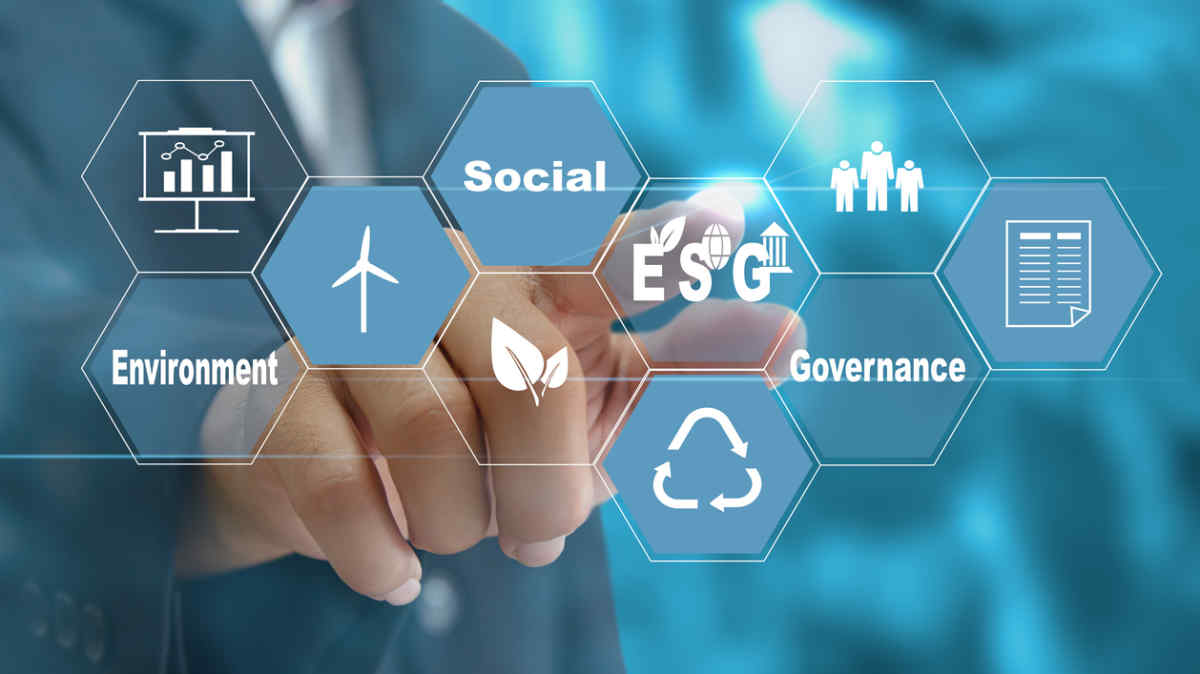

?Environmental, social and governance (ESG)—an employer’s use of its financial resources to improve the environment and effect social and corporate governance change—is important to Millennials and members of Generation Z.
And while ESG initiatives factor into many individuals’ decisions to join and stay with an employer, they especially matter to younger generations, according to new findings from the Society for Human Resource Management (SHRM).
ESG is used by organizations as a framework for initiatives such as:
- Reducing waste and pollution, increasing energy efficiency, and reducing climate change (environment).
- Ensuring human rights, improving employees’ health and safety, and providing training and education programs (social).
- Ensuring board diversity, following ethical protocols and addressing executive compensation (governance).
ESG initiatives are considered important to more than 4 in 10 U.S. workers (41 percent).
However, ESG is especially important to younger workers—individuals born between 1981 and 2012—with 46 percent of Generation Z and 55 percent of Millennials saying ESG is important.
A Focus on the Environment
Environmental factors were overwhelmingly reported as the most important ESG issue to the 1,009 U.S. workers responding to SHRM Research’s survey in 2022—more than half (54 percent) indicated they were most important, followed by social issues (24 percent) and governance (11 percent).
If respondents had to choose one factor for their organization to focus on, more than half would choose the environment (52 percent), followed by the social (34 percent) and governance (15 percent) factors.
Reducing waste and pollution was the environmental initiative they most favored, U.S. workers said, followed by reducing climate change and improving energy efficiency.
“A major part of ESG growth has been driven by the environmental component of ESG and responses to climate change. But other components of ESG, in particular the social dimension, have also been gaining prominence,” McKinsey Sustainability reported in August 2022.
Among social ESG initiatives, U.S. workers overall told SHRM the three most important issues were improving employee health and safety; improving employee working conditions; and helping local communities, such as by contributing to food drives, community cleanups and local donations.
The three governance ESG initiatives that workers favored overall were reducing corruption and bribery within organizations, increasing the transparency of donations and political lobbying, and fair compensation at all levels of the organization.
What Executives Said
U.S. executives ranked the importance of ESG initiatives even higher than employees did—51 percent of executives ranked them as important versus 41 percent of employees. The findings are from a separate SHRM Research survey of 284 respondents that included C-suite officers, CEOs, presidents and vice presidents at nonprofit, public and private organizations.
Additionally, 75 percent said ESG initiatives have a positive impact on employee engagement, which has been on leaders’ minds. Gallup reported that in 2021, employee engagement declined for the first time in a decade, dropping from 36 percent in 2020 to 34 percent in 2021. In 2022, it fell to 32 percent.
SHRM Research also found:
- Among organizations with ESG-related goals, social objectives led the list, followed by environmental and governance (77 percent, 58 percent and 44 percent, respectively).
- If executives had to choose only one ESG factor for their organization to work on, social would lead the way (63 percent), followed by environmental (21 percent) and governance (16 percent). This differed from employees, who would choose the environment.
- 48 percent of executives have ESG-related goals, and 12 percent were unsure. Among the 40 percent who do not have ESG goals, the two reasons they most frequently cited were other organizational priorities and the size of their organization—they thought their companies were too small.
Among executives at organizations with ESG strategies, 60 percent said they positively impacted retention and 64 percent said they positively impacted recruitment. As for ESG’s impact on profits, 46 percent said there was no impact, 34 percent said the impact was positive and 20 percent said the impact was negative.
However, lack of time, lack of employees to work on ESG initiatives and lack of funds are the top three challenges that prevent organizations from making additional investment in ESG-related goals, executives said.
Impact on Organizations
More than 90 percent of S&P 500 companies publish ESG reports in some form, according to the Governance & Accounting Institute in New York City, and one-third (33 percent) of U.S. employees who work for organizations with ESG-related goals said the ESG strategy was one of the reasons they applied for a job at their employer.
But 36 percent of workers weren’t aware of their organization’s ESG strategy when they applied for their job and 31 percent said it wasn’t a factor in their job application, SHRM found.
ESG goals also can impact retention—86 percent of workers who work for organizations with ESG-related goals said their employer’s ESG goals make them proud to work there, make their jobs more meaningful and make them want to stay with their organization.
But would workers be willing to make personal sacrifices to work for an employer with an ESG strategy? The research found that if ESG strategies line up with U.S. workers’ values and beliefs, workers would be willing to:
Take a pay cut: 34 percent of Generation Z, 39 percent of Millennials, 24 percent of Generation X and 22 percent of Boomers/Traditionalists.
Relocate for a job: 53 percent of Generation Z, 55 percent of Millennials, 37 percent of Generation X and 25 percent of Boomers/Traditionalists.
Accept a job with fewer benefits, such as health and retirement coverage: 40 percent of Generation Z, 41 percent of Millennials, 23 percent of Generation X and 21 percent Boomers/Traditionalists.
Accept a job with less work/life balance: 45 percent of Generation Z, 43 percent of Millennials, 30 percent of Generation X and 24 percent of Boomers/Traditionalists.
Other SHRM Resources:
Senate Votes to Overturn ESG Retirement Rule; Biden Plans to Veto, SHRM Online, March 2023
The Takeaway: A Discussion Guide on Incorporating ESG Goals, People + Strategy Journal, Winter 2023
What Board Members Need to Know About ESG, Executive Network, April 2022
Every Leader Needs to Understand ESG, Executive Network, April 2022

